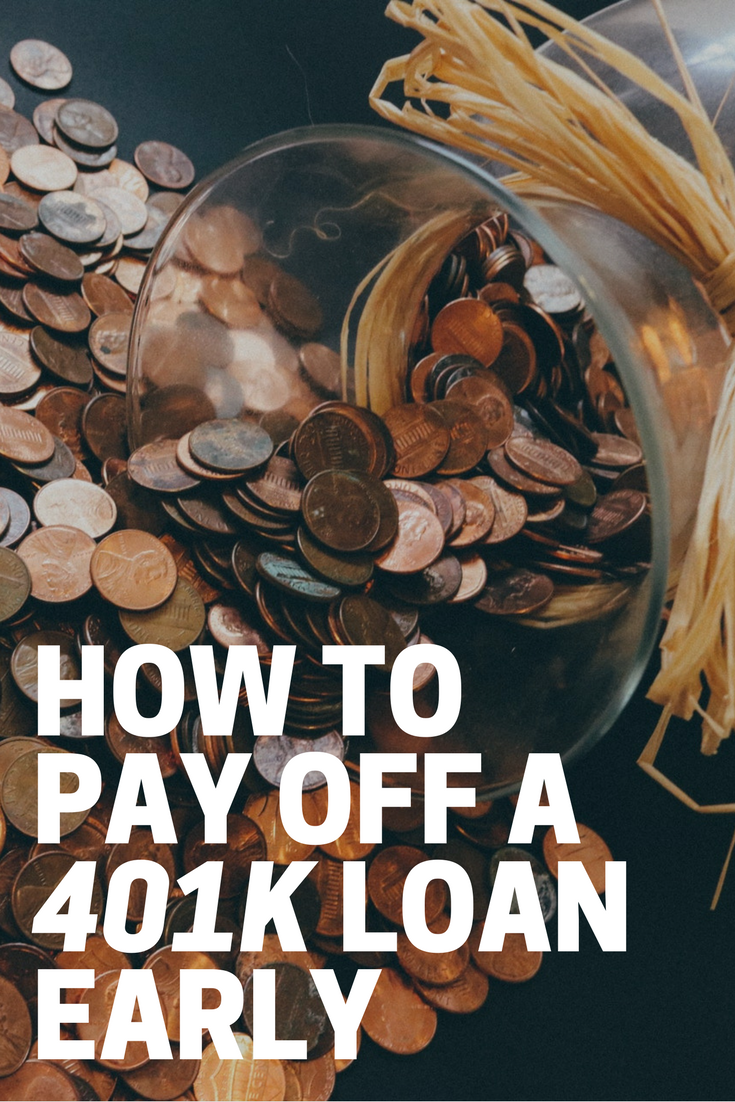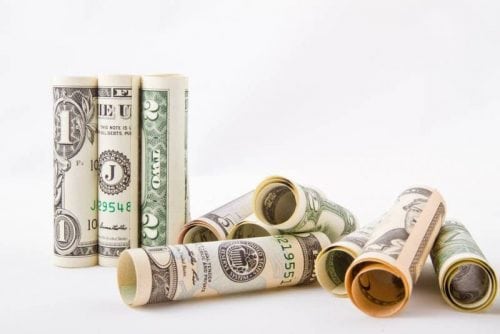
It’s true many of us would prefer not to take money from our retirement plans until after we retire, but we are sometimes left with no option. Fortunately, most qualified plans offer employees the ability to borrow from their retirement assets and repay that amount with interest to their retirement account.
Borrowing from your 401(k) lets you tap your retirement savings early without income tax consequences as long as you pay the loan on time.
A 401(k) loan must be paid in full over no more than five years, but why do you need to pay your loan early? We’re going to take a closer look at what it takes to pay off a loan quick and if there are any drawbacks to it.
Interest Rates
The interest rate is something you should take into account. Credit cards have much higher interest rates than other types of loans, so they should be paid off as soon as possible. If you have many credit cards, start with the account that has the highest interest rate first and then move on to the account with the next highest interest rate.

Continue until all credit card balances are paid in full. Loans with lower interest rates such as student loans, mortgages, and car loans might not be as much of a priority and any excess money may be better used elsewhere.
Don’t forget to pay those loans on time because they are still very valuable, but perhaps any leftover money would be better used towards paying off medical bills or credit card debt.
Penalties
Another important consideration to make is whether there is a penalty that would be applied if a loan were to be repaid off early. You would need to either review the documentation that you’ve signed when taking out the credit or ask the lender to see if penalties would apply.
Depending on the amount the penalty, the savings in accrued interest may not be profitable in the end. Sometimes these loans can have high early payoff penalties added on.
Savings
Remember, before deciding to pay off a loan, make sure to factor in the amount that the borrower has regarding ∫. The priority would be to make sure that you have saved enough for emergencies.
Six to eight months’ worth of pay should be the goal – this would cover everyday expenses in the event of a job loss if the borrower becomes ill or any other emergencies happen. If an accident occurs, it’s much better to have this funds available than to need to depend on high-interest credit cards to get through.
If the borrower has children, they may want to determine if their money would be better off being put towards saving for school. There are college savings plans available such as Coverdell Education Savings Accounts and 529 programs that provide significant tax advantages when saving for your child’s college expenses.

Retirement savings are also important and should be a priority. If the borrower’s employer gives a 401k plan with matching contributions, make sure that they are giving the maximum amount to take advantage of the company match.
With fewer employers offering pensions, it is becoming more important that individuals make sure that they have enough saved for a secure retirement. After you consider all of these factors, you will be in a better situation to see if it would be in your best interest to talk to your lenders and request a payoff amount.
Potential Drawbacks
Although there are many advantages to paying off a loan early, there are possible drawbacks as well. Say you have a significant amount that you would like to use to eliminate a credit.
Yes, the loan will be covered if you pay it off, but it will also include all of the money you put towards eliminating it. And once that money is gone, you cannot get it back, no matter how much you need it. And in today’s unstable economy, it is sensible to have money set aside as an emergency fund if an unexpected event happens such as sickness or job loss.

It is important to remember that in the unfortunate situation you do become unemployed; you will not have the necessary income to be entitled to a loan no matter how much you need it. It becomes a vicious cycle: it becomes difficult to get cash when you end up needing it the most.
While working towards becoming debt-free, use every trick in the book to save money, increase income, and pay down debt faster.
Methods to Pay Off Your 401k Loan Faster
Make Bi-Weekly Payments
Biweekly is the typical pay schedule. When you pay biweekly, this means you pay every other week. There are 26 pay periods in a year, but sometimes 27 depending on how many Fridays occur that year. Submitting half the payments every two weeks instead of the regular monthly payment will accomplish three things:
- Less interest will accumulate because your balance is continuously decreasing, lessening the amount of interest debited against your outstanding balance versus paying once a month.
- You will pay an additional payment because there are 52 weeks in a year, which equals 26 yearly payments.
- Doing this for the term of the loan could cut off several months without you realizing it.
Round Up the Payments
Rounding up means rounding to the next higher number, may it be by the next number, tens, hundreds and so on. Rounding up your payments is a simple way to pay more. Just like making bi-weekly payments, you don’t need a lot of spare money to remove a few months on the term of your loan.

For example, my monthly due was $362.18, but I chose to round it up to $400, which is an extra $37.82 per month. After 12 months, that would be a plus of $453.84 which is more than one month of payment.
You could even go a step further and bump up your payments by an extra $40 to $80 per month. Over time, that will add up to a significant amount that will save you bucks on interest and shorten the time of your loan.
Pay on Your Extra Pay Periods
Maybe you have not thought about it before, but if you get paid weekly, you usually get four paychecks a month, and you will receive five paychecks every year for four months.
If you get paid biweekly, you typically bring home two paychecks a month. These extra paychecks are fun to spend on petty things, but they are perfect for paying down your loan debt. Remember the more you settle towards your loan, the faster you will get it paid off.
Snowball Debt Payments
The debt-snowball method is a debt reduction tactic, whereby one who owes more than one account pays off the accounts beginning with the smallest balances first while paying the minimum payment on larger debts.
Once the smallest debt is paid off, one proceeds to the next slightly bigger debt above that, so on and so forth, gradually moving to the larger ones later. This method is sometimes related to the debt stacking method, also known as “debt avalanche method“, where one pays the account with the highest interest rate first.

Take your lowest amount of debt, save to put any extra funds possible to get it paid off. Then use the money you were paying on that debt and apply it to your other debt. Use the same process till all of your debts are covered.
Snowball debt payments will work excellently for most individuals. Either way can work, but some people want to start on the debt with the highest interest first instead of the one with the shortest time to pay off. The problem is you cannot be adding more debt at the same time if you ever want to get out of debt.
Debt can be addicting, the immediate enjoyment feels so good, but the debt piles up and ends do not meet. Stop getting debt to pay it off.
Moonlight
Moonlighting is taking on a second work separate from your primary source of income. Getting an additional job is a great way to settle down debt, so pick something you love doing.

A moonlighting work should be something that makes you happy. Writing, bartending, cleaning, assisting in parties, whatever task you decide to pursue, make sure it is flexible.
Advantages of Moonlighting
- Money: That's still the greatest reason people take on extra work. And with gas prices and health insurance premiums on the rise and many incomes frozen, additional income can be a lifeline.
- Freedom: A second work or career can bring psychological benefits, such as the feeling of not being shackled to one company.
- Security: Many experts today are looking at extra jobs as a fallback because they feel that their primary job is not completely safe.
- New skills: If you're thinking about changing careers but can't take the leap, taking a part-time work could be a way to test the waters or boost your entrepreneurial skills.
Online Selling
Online selling is the act or process of selling goods, products or services online via an internet or mobile app, auction site, online classified advertisement, online shop, social networking, or social media.
It is like having a garage sale but on a bigger scale. Selling items online is easier than ever before. You can sell any of your things online like board games, clothes, appliances, gadgets, and so much more.

Try picking up some useful items at local garage sales and sell them on the internet. It does take a little effort to start selling online, but you will be able to make your first transaction in no time at all.
Remember you do not need to earn thousands of dollars but just enough to help pay down your loan debt. Even as much as $20 to $40 a month could take months off your loan term.
The Benefits of Paying Off Your 401k Loan Early
The bottom line is that clearing off your loan quick will save you money from interest and lower the overall term of the loan. Just think what you could do with your excess money: save for home improvements, retirement, buy new things or pay off your other debts.

Don't let the financial media frighten you from a valuable liquidity option included in your 401(k) plan.
When you loan yourself proper amounts of money for the right short-term causes, these transactions can be the best, most comfortable and cheapest cost source of cash.
There are lots of benefits in paying off your loan early, but one of the most important is it gives you less stress and less risk because you won’t be a slave to the lender anymore.



